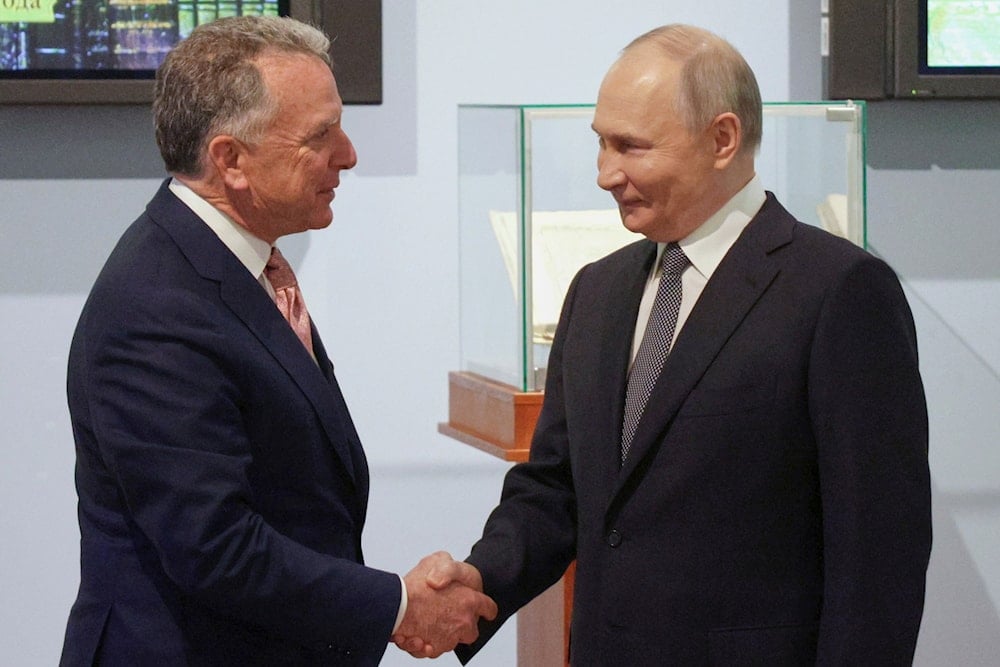US delays Russia sanctions vote pending Witkoff’s Moscow visit
The bipartisan legislation proposes 500% tariffs on countries buying Russian energy.
-

Russian President Vladimir Putin, right, and US President Donald Trump's special envoy Steve Witkoff greet each other before their talks in St. Petersburg, Russia, on April 11, 2025. (Gavriil Grigorov, Sputnik, Kremlin Pool Photo via AP)
The US Senate has delayed deliberations on sweeping sanctions legislation against Russia until after special envoy Steve Witkoff completes his upcoming visit to Moscow, the Kyiv Post reported Friday, citing Republican sources. Witkoff is expected to travel to the Russian capital next week.
While the postponement of the bill, introduced by Senator Lindsey Graham, could signal that the issue falls under executive rather than congressional authority, Republican sources told the newspaper that US President Donald Trump's stance is the primary force driving the timing.
Graham, known for his hawkish rhetoric on Russia, introduced the sanctions bill last Tuesday. The legislation proposes imposing 500% import duties on goods from countries that purchase Russian oil, petroleum products, natural gas, and uranium from Russia.
Bloomberg later reported that senators were unwilling to pass the measure without Trump's explicit approval, while European Commission President Ursula von der Leyen told Graham about the need for coordinated sanctions against Russia.
Bill's origins, provisions
The Sanctioning Russia Act of 2025 was originally introduced in April by Graham and Senator Richard Blumenthal, attracting bipartisan support from 84 co-sponsors, including 40 Democrats, 39 Republicans, and one Independent.
The bill's core provisions include 500% tariffs on Russian goods and secondary tariffs targeting major buyers like China, India, and Brazil, which account for approximately 80% of Russia's crude exports.
It also mandates asset freezes on Russian military generals, businessmen, and financial institutions, adding property-blocking sanctions on institutions organized under Russian law.
Despite overwhelming bipartisan support, the bill remained in committee for roughly eight months. Senate Majority Leader John Thune repeatedly stated he was coordinating with the Trump administration and wanted explicit presidential approval before bringing it to a vote.
The administration initially requested that Graham insert waivers allowing Trump discretionary authority over which entities would face sanctions. Moreover, Trump wanted to explore whether he could negotiate a ceasefire between Ukraine and Russia directly before Congress took action that might jeopardize potential peace talks.

 2 Min Read
2 Min Read









